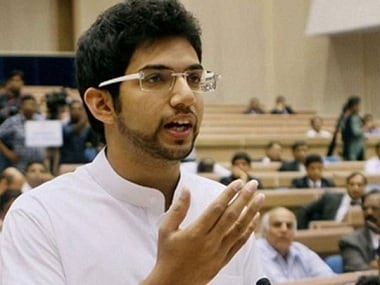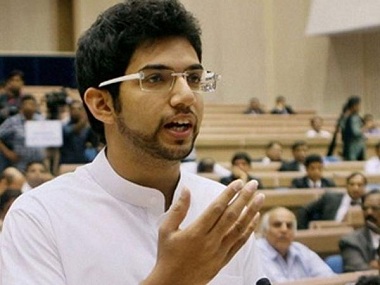The Maharashtra Cabinet recently okayed state tourism minister Aditya Thackeray’s plan to allow malls, multiplexes, shops and restaurants in Mumbai to function all night from 27 January onwards. Thackeray, who had first suggested the plan in 2013, recently said that the move would allow Mumbai to realise its potential as the financial and entertainment capital of India, citing the example of London’s £5 billion night economy. In the first phase, shops, restaurants and multiplexes in malls and mill compounds situated in non-residential areas will be allowed to remain open 24x7 as opposed to the previous rules, which mandated that restaurants and pubs shut by 1.30 am, and allowed only five-star hotels to operate round-the-clock eateries. Thereafter, in areas such as Nariman Point, Bandra Kurla Complex and Marine Drive, food trucks will be allowed to operate in designated areas, However, the decision to improve Mumbai’s nightlife has raised several concerns in terms of security, especially that of women, traffic management, and the additional burden that a bustling Mumbai nightlife would put on the city’s police. Questions have also been raised concerning the actual benefit that the young Maharashtra tourism minister’s plan would bring to the city’s economy. [caption id=“attachment_5322151” align=“alignleft” width=“380”]  File photo of Aditya Thackeray. PTI[/caption] BJP’s Ashish Shelar was among the first to point out how the move adds to the plight of the already stressed police force. In fact, according to a Hindu report, the Mumbai Police would need to recruit an additional 6,500 personnel to keep the law and order situation under control once establishments begin to function 24 hours. Even removing a part of the security given to VVIPs and senior IPS officers will only add 600 police personnel to the force to be deployed in Mumbai, the report added. However, on Wednesday, Thackeray justified his plan, saying the decision would allow the police to focus only on law and order as it would no longer have to check whether shops and establishments had shut down. The decision to allow shops to remain open 24x has also raised concerns over the safety of women, especially in the light of the alleged gangrape case at Lokmanya Tilak Terminus (LTT), Kurla, earlier this week. Raj Purohit, another BJP leader, has opposed the move saying that city staying open 24X7 is against the Indian culture and “will lead to an increase in crime against women”. BJP leader Chitra Wagh has also questioned the plan raising concerns over the safety of women commuting during the odd hours after the nightlife concept is implemented. The proposal has also seen the apprehension of Maharashtra Home Minister Anil Deshmukh, who had said on Monday that the policy will not be implemented across Greater Mumbai owing to the already overburdened police force. Thackeray, however, underplayed the security concerns saying that the policy offers provisions for installing CCTVs in malls and mill compounds and that establishments that choose to remain open through the night would have to pay for additional security. However, the expenditure incurred by the state in recruiting more police personnel or the restaurant spending an additional amount on security may have an adverse bearing on the consumer’s pocket. Norms relating to solid waste management, regulation of noise levels and curb on serving of liquor by establishments choosing to stay open beyond 1.30 am will be strictly followed, attracting a penalty on being flouted, the state tourism minister said. “They will have to have to follow labour laws by bringing in workers in three shifts,” he added. However, city-based activist Ulka Mahajan said the establishments are likely to begin flouting these norms. “The pubs and restaurants will gradually start flouting norms. Though liquor is prohibited, establishments/pubs/restaurants would want to serve liquor behind the closed doors,” she told the Free Press Journal. The state government and its supporters have also hailed the move for its positive impact on the flailing economy. “We are hopeful that this move will provide jobs and revenue to our youth,” Thackeray told reporters after the cabinet meeting. However, by what extent, will become clear only after the policy comes to effect on 27 January. In a city, where the average tourist expenditure per day is said to be ₹6,718 for overseas and ₹3,141 for domestic tourists (2017 figures), it would be interesting to see if shops choose to incur the extra cost involved in staying open through the night or go back to the old routine. With inputs from PTI
A go-ahead by the Maharashtra Cabinet will now allow malls, multiplexes, shops and restaurants in Mumbai to function all night from 27 January onwards
Advertisement
End of Article


)

)
)
)
)
)
)
)
)



